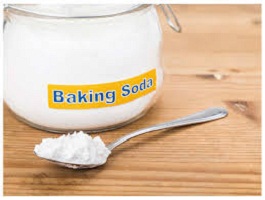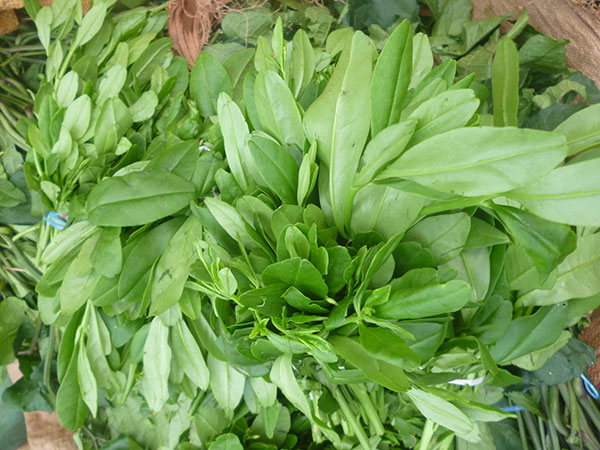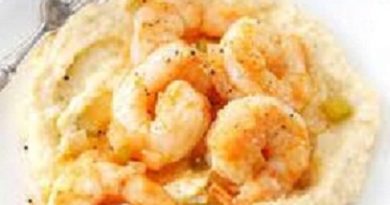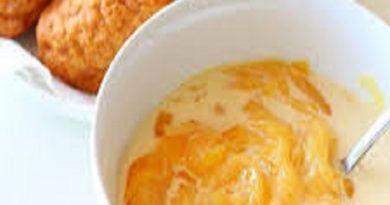Baking Soda Benefits, Uses, and Side Effects
Baking soda is a leavening agent and a staple in many households around the world.
It comes with a slightly bitter, salty taste and is regularly used in baking because of its capability to react with an acid to create carbon dioxide gas, which produces “fluffiness” in the completed recipe.

What Is Baking Soda?
Baking soda generally known as Sodium bicarbonate or bicarbonate of soda is a chemical compound with the formula NaHCO₃.
Learn How to Make Oatmeal Chocolate Chip Cookies
It is a salt made of a sodium cation and a bicarbonate anion. Sodium bicarbonate is a white solid explicitly crystalline, but often appears as a fine powder.
What Is Baking Soda Used For?
Being a versatile product, Baking soda, or bicarbonate of soda can be used for face, skin, in cooking, for cleaning, etc.
When used in baking, baking soda acts as a chemical leavener, producing carbon dioxide in reaction to an acid (like vinegar).
This produces bubbles that help the cake or cookie rise to tender, moist, and fluffy perfection.
Apart from being an ingredient in your cookie recipe, it is also a versatile ingredient that has many household uses and health benefits.
This household staple can help remove tough stains and help clean difficult areas like the oven, microwave, and even tile grout. Also, it eliminates foul odors
Moreover, baking soda has a variety of health benefits. For instance, it can help treat heartburn, soothe canker sores, and even whiten your teeth.
Interestingly, it is low-cost and generally accessible. You can easily grab a container of Sodium bicarbonate from your local grocery store.
Below Are Other Benefits and Uses of Baking Soda
For Health
- Enhance your bath water with baking soda to get rid of itchy or sunburned skin.
- Apply Sodium bicarbonate and water paste to a burn or an insect bite for relief.
- Your craving for sweets will disappear instantly if you rinse your mouth with one-teaspoon Sodium bicarbonate dissolved in a glass of warm water and spit it out.
- Wash your fresh fruits and vegetables to remove dirt, pesticides, and wax in a large bowl of cool water to which you have added two to three tablespoons of Sodium bicarbonate.
In The Kitchen
- For cleaning your kitchen equipment, use one-teaspoon Sodium bicarbonate to one quart of warm water.
- Decant a cup of baking soda into the opening of your clogged drain, and then add a cup of hot vinegar. After some minutes, flush the drain with boiling water.
- To get rid of stains from your teacups and coffee wipe them with a moist sponge immersed in Sodium bicarbonate paste.
- Allow to boil, two inches of water in a pan with a burned bottom, before turning off the heat, and adding half a cup of Sodium bicarbonate. Let it sit all through the night. In the morning it will be easy to clean.
- Dust a teaspoon of Sodium bicarbonate on the bottom of your toaster oven to remove the burned smell from drippings and crumbs.
In The Bathroom
- Immerse toothbrushes in Sodium bicarbonate and warm water overnight to clean bristles.
- Retain your rubber gloves dryness and good smell good by sprinkling baking soda inside them. They will slip on more easily too!
On Clothing
- Firstly, rub a thick paste of Sodium bicarbonate and water into the perspiration stain; let it sit for an hour washing before washing.
- Clothes with Gasoline and oil odors can be removed by putting them in a trash bag with Sodium bicarbonate for a few days before washing them.
Baking Soda vs. Baking Powder: Any Difference?
As earlier mentioned, Baking soda is sodium bicarbonate, which requires acid and a liquid to become activated and help baked goods to rise.
On the other hand, the baking powder comprises sodium bicarbonate, as well as an acid. It only needs a liquid to become activated.
To substitute in a cookie recipe, please note that sodium bicarbonate is not the same as a baking powder (often used in baking).
Baking powder contains cream of tartar, the acid or leavening agent that makes creates the chemical reaction when mixed with water.
To avoid confusing the two, always note that baking powder can be used on its own while baking soda should only be used in recipes with an acid or leavening agent that it can interact with.
Side Effects: Is Baking Soda Harmful To Humans?
Enduring and abuse of Sodium bicarbonate can increase your risk for:
- Hypochloremia or chloride blood deficiency.
- Worsening kidney disease
- .Hypokalemia or potassium blood deficiency.
- Deteriorating heart failure.
- Hypernatremia, or rise in sodium levels.
- Muscle weakness and cramps.
- Greater than before stomach acid production.



Pingback: Baking Powder Recipe, Substitutes, and Uses - 9jafoods